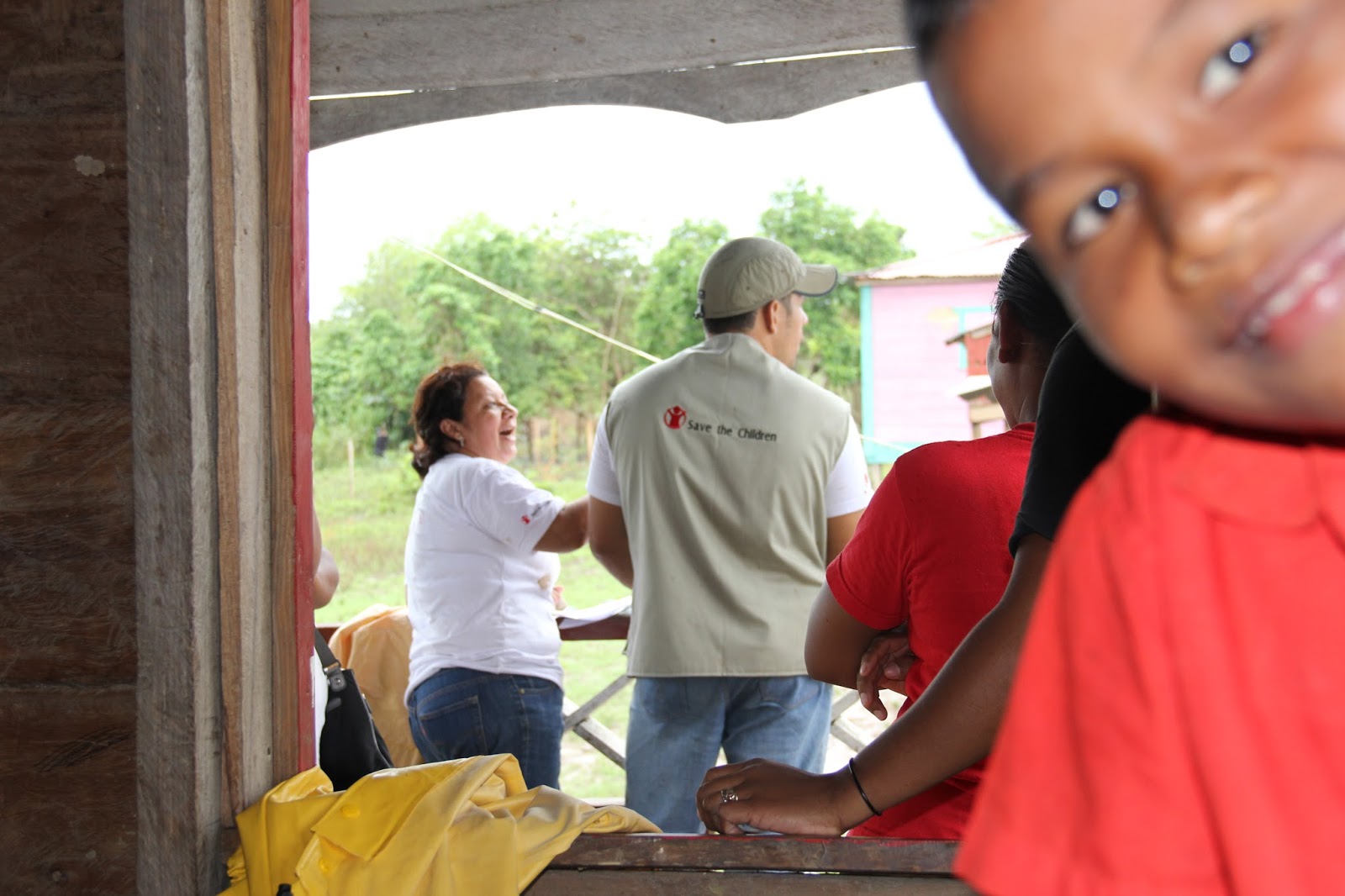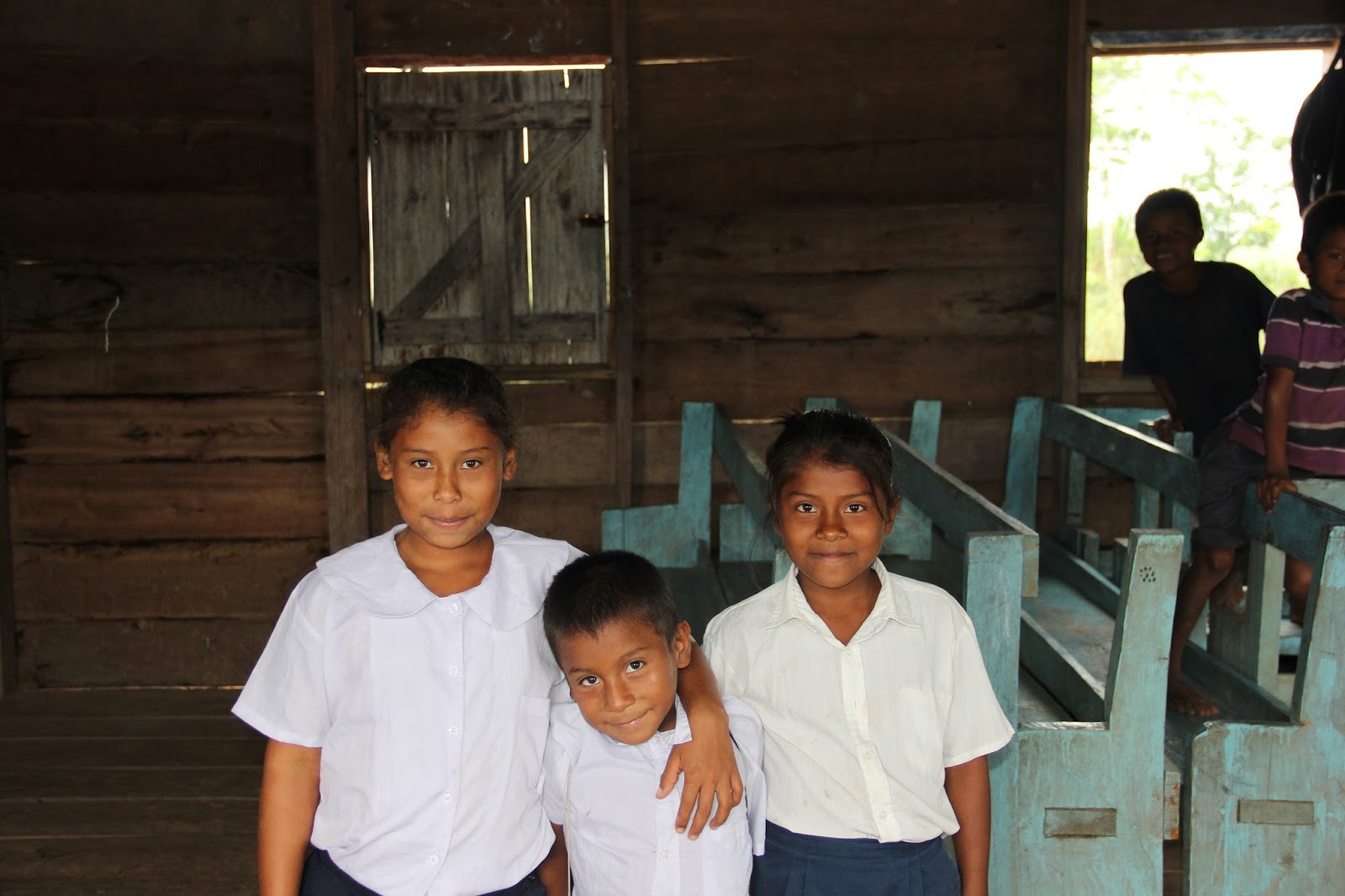12.08.2013
After a few hours by boat, we arrive to Auhya Pura, a small community with houses along the river, where only Miskitu is spoken. The community leader comes with us to the church and we begin the process of food distribution. This church has been the "temporary school" for more than 6 years. Here, we are going to give food aid to 197 people, of which 113 are children
After a few hours by boat, we arrive to Auhya Pura, a small community with houses along the river, where only Miskitu is spoken. The community leader comes with us to the church and we begin the process of food distribution. This church has been the "temporary school" for more than 6 years. Here, we are going to give food aid to 197 people, of which 113 are children
DISTRIBUTION OF FOOD AID
"Some kids come without eating and come sad. Most families here have lost the entire crop. The food which you are going to distribute today is essential because many of them have not how to eat" says Tania Moody, one of the teachers of the community.
To find out how many aid we have to distribute, we did a census, we went house to house to count how many are affected by the floods. In this community, 31 households receive food aid. Then, they come with their ID and tell us how many people live per household, sex and age of each one.
 The families are very numerous because the birth rate is high and parents are young. We are surprised that there are very few people over 60 years. It also surprises me that most do not know how to write and have to sign with the initials of their names or with the fingerprint.
The families are very numerous because the birth rate is high and parents are young. We are surprised that there are very few people over 60 years. It also surprises me that most do not know how to write and have to sign with the initials of their names or with the fingerprint.
 The families are very numerous because the birth rate is high and parents are young. We are surprised that there are very few people over 60 years. It also surprises me that most do not know how to write and have to sign with the initials of their names or with the fingerprint.
The families are very numerous because the birth rate is high and parents are young. We are surprised that there are very few people over 60 years. It also surprises me that most do not know how to write and have to sign with the initials of their names or with the fingerprint.
In the community we are highly expected; since they heard a boat coming, they are waiting on the bank of the river. Children are very sweet and cheerful. They show me the new school and want to see the pictures I do.
COMMUNITY CONDITIONS
The community has very poor conditions. The houses are built on bases and are made of wood. Most are small and only have one or two spaces, although there are many people living in each house.
Everything is full of mud and there are many animals dropping due to the overflowing of the river and flooding in the community. The latrines are also in very poor conditions; there are several parents who tell us that many children are sick due to lack of hygiene and contaminated water.
Most people walk barefoot, including children. Kids are very happy and curious; they are playing all the time together. "I'm afraid to come to school when it rains, because we have to come by canoe and it is dangerous," says Ivania, a 10 years old girl who is surrounded by children. "Many children do not usually come due to the weather, because if it rains, because who live far away and have to come sculling, cannot come", tell us the teacher. However, Yoiner, an 8 years old boy, says "We are all friends, we always play together".
 "I am happy because I can come to school", tell us Yoiner, a 8 years old boy with a big smile, "I love adventure stories".
"I am happy because I can come to school", tell us Yoiner, a 8 years old boy with a big smile, "I love adventure stories".
The teacher says, "Kids enjoy coming here and doing homework. All are very studious. But where we are now (in the church-"provisional school") they have many problems. We have not tables, then they write crouched on banks.
"I'm very happy because we will have a new school," says Ivania. "Our school is going to be the prettiest of the River" tells Yoiner, who is waiting for his parents to pick up food aid. This school is being built by the Christian Medical Action with funding from Save the Children, "next month it will be open, we are going to be the first to study there!" tell us Yoiner excited.
"They want to have lessons until 6th grade so we have more chances to end childhood education" says Ivania. "Most of the kids do not finish elementary school because there is no possibility to study up more than 4th grade here. Now we have around 70 children", tell us the teacher.
EDUCATION SYSTEM
 "I am happy because I can come to school", tell us Yoiner, a 8 years old boy with a big smile, "I love adventure stories".
"I am happy because I can come to school", tell us Yoiner, a 8 years old boy with a big smile, "I love adventure stories".The teacher says, "Kids enjoy coming here and doing homework. All are very studious. But where we are now (in the church-"provisional school") they have many problems. We have not tables, then they write crouched on banks.
"I'm very happy because we will have a new school," says Ivania. "Our school is going to be the prettiest of the River" tells Yoiner, who is waiting for his parents to pick up food aid. This school is being built by the Christian Medical Action with funding from Save the Children, "next month it will be open, we are going to be the first to study there!" tell us Yoiner excited.
"They want to have lessons until 6th grade so we have more chances to end childhood education" says Ivania. "Most of the kids do not finish elementary school because there is no possibility to study up more than 4th grade here. Now we have around 70 children", tell us the teacher.





No comments:
Post a Comment